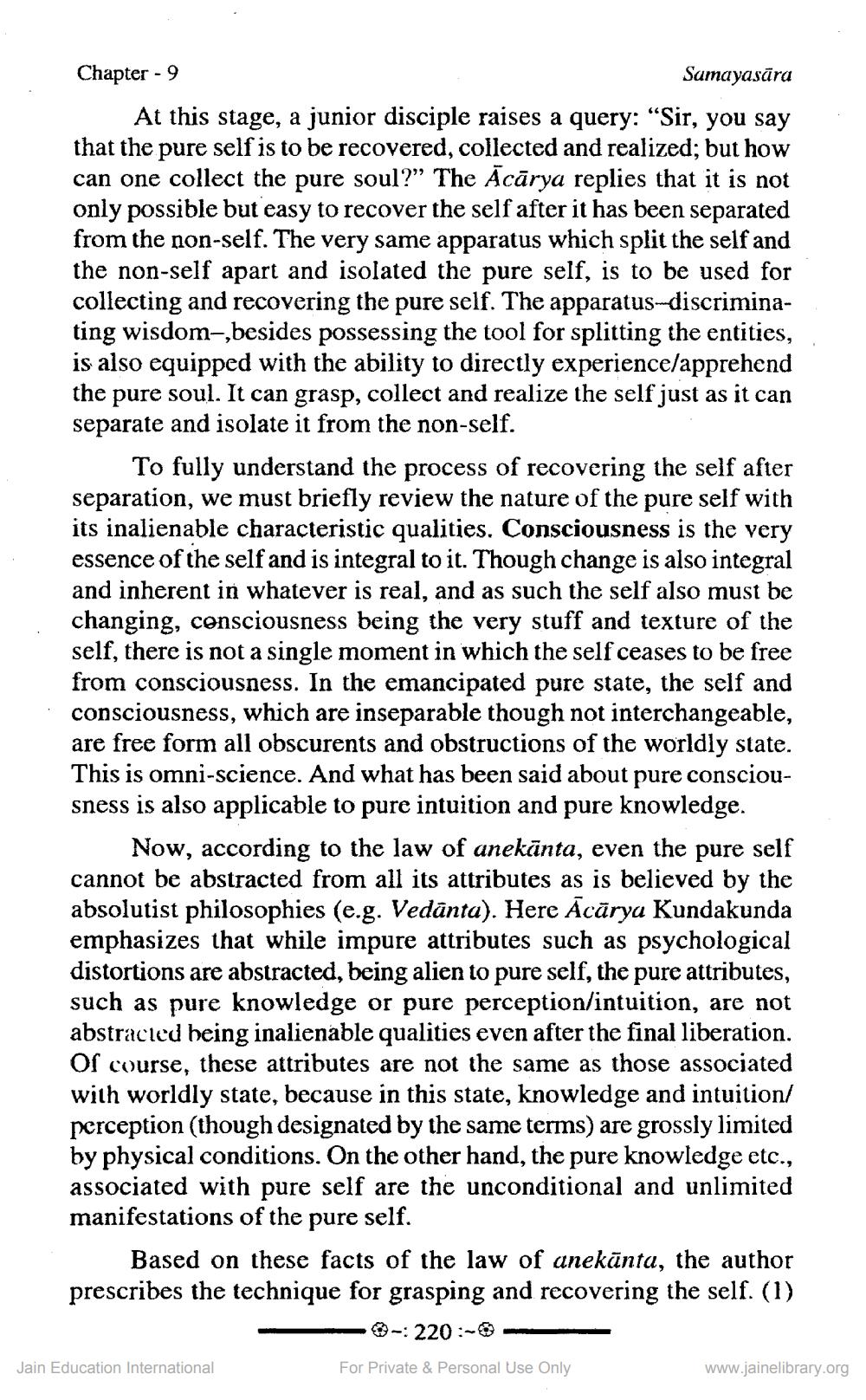________________
Chapter - 9
Samayasāra At this stage, a junior disciple raises a query: “Sir, you say that the pure self is to be recovered, collected and realized; but how can one collect the pure soul?” The Ācārya replies that it is not only possible but easy to recover the self after it has been separated from the non-self. The very same apparatus which split the self and the non-self apart and isolated the pure self, is to be used for collecting and recovering the pure self. The apparatus-discriminating wisdom-besides possessing the tool for splitting the entities, is also equipped with the ability to directly experience/apprehend the pure soul. It can grasp, collect and realize the self just as it can separate and isolate it from the non-self.
To fully understand the process of recovering the self after separation, we must briefly review the nature of the pure self with its inalienable characteristic qualities. Consciousness is the very essence of the self and is integral to it. Though change is also integral and inherent in whatever is real, and as such the self also must be changing, consciousness being the very stuff and texture of the self, there is not a single moment in which the self ceases to be free from consciousness. In the emancipated pure state, the self and consciousness, which are inseparable though not interchangeable, are free form all obscurents and obstructions of the worldly state. This is omni-science. And what has been said about pure consciousness is also applicable to pure intuition and pure knowledge.
Now, according to the law of anekānta, even the pure self cannot be abstracted from all its attributes as is believed by the absolutist philosophies (e.g. Vedānta). Here Ācārya Kundakunda emphasizes that while impure attributes such as psychological distortions are abstracted, being alien to pure self, the pure attributes, such as pure knowledge or pure perception/intuition, are not abstracted being inalienable qualities even after the final liberation. Of course, these attributes are not the same as those associated with worldly state, because in this state, knowledge and intuition/ perception (though designated by the same terms) are grossly limited by physical conditions. On the other hand, the pure knowledge etc., associated with pure self are the unconditional and unlimited manifestations of the pure self.
Based on these facts of the law of anekānta, the author prescribes the technique for grasping and recovering the self. (1)
- - 220:Jain Education International For Private & Personal Use Only
www.jainelibrary.org




